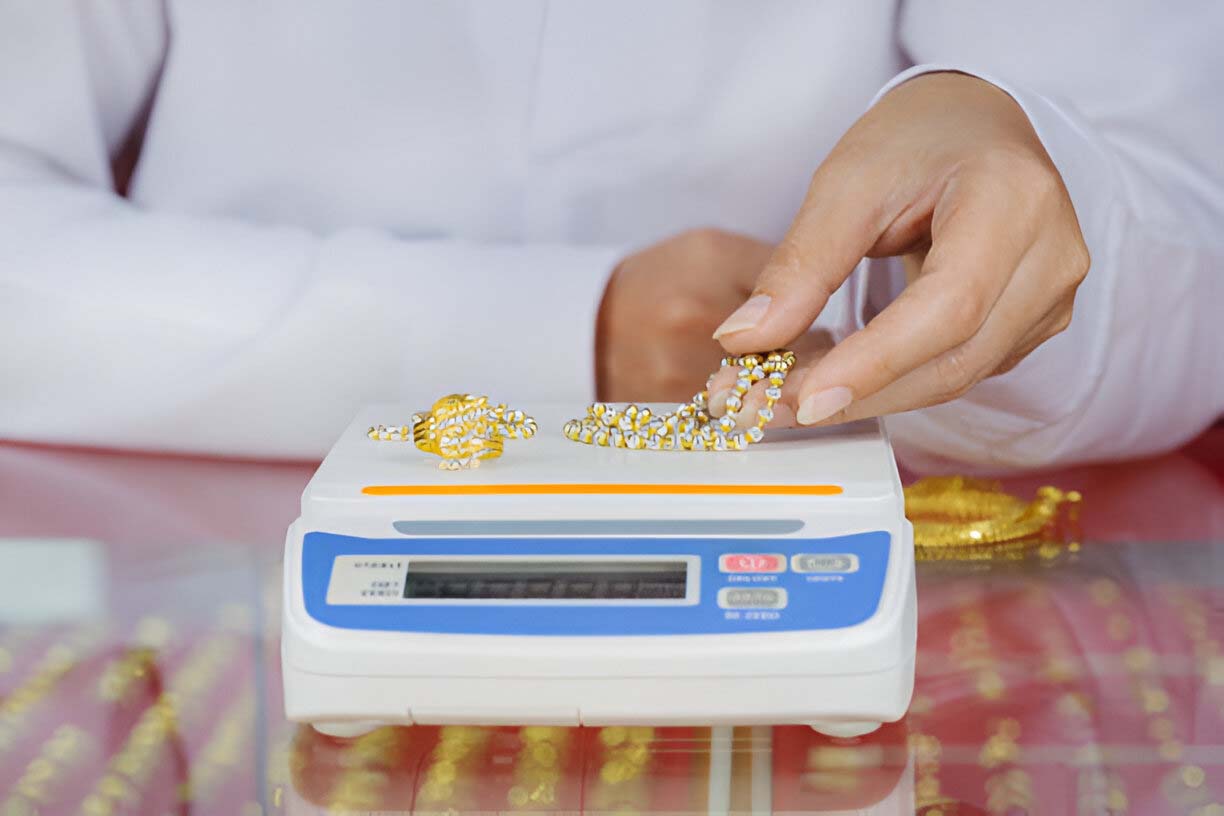| 1 |
|---|
| Financial Disclaimer: The content provided on this site is for informational purposes only and should not be considered professional financial advice. We encourage you to consult with a qualified financial advisor before making any financial decisions. We Heart is not responsible for any financial losses or damages resulting from your reliance on the information provided. |
The allure of selling gold has been a driving force in the precious metal market for centuries. Be it through inherited jewellery, old coins found in a grandparent’s attic, or simply wanting to cash in on the high value of gold, many individuals have turned to sell their gold as a source of income.
As experts in the field of precious metals trading, we understand this struggle and have compiled our top tips for successfully selling your gold. Sit back and let us guide you through this process as we help you navigate the market when it comes to selling your gold.

Choose a Reputable Buyer
Selecting a trustworthy buyer is paramount to ensuring you get the best value for your gold. The first thing you should do is research and compare different gold buyers, paying close attention to customer reviews and ratings. Verify that the buyer is accredited by a recognised industry organisation, such as the Better Business Bureau or a similar entity. Be wary of offers that seem too good to be true, as they often come with hidden fees or unfavourable terms.
To maximise your return, obtain multiple quotes and be prepared to negotiate. Know that a reputable buyer will always provide a clear and transparent transaction process, ensuring your peace of mind when selling your precious metals.
Know the Market Value
Perhaps one of the most important aspects of selling your gold is understanding its market value. The price of gold fluctuates daily, so it’s crucial to stay up-to-date with the current market trends. Resources such as Kitco and Bloomberg provide real-time gold prices that can help you determine a fair price for your gold.
Even the purity and weight of your gold will also affect its value. Be sure to have your gold appraised by a professional or use a trusted online calculator to estimate its worth accurately. With all this information at hand, you can confidently negotiate and sell your gold for its true market value.
Consider the Type of Gold You’re Selling
Gold comes in different forms, including jewellery, coins, and bars. Each type has its own unique characteristics that may affect its value. For example, antique or rare coins may have a higher value than newer versions due to their historical significance or limited edition status.
When selling gold jewellery, take into account the design and craftsmanship as well. A simple gold band will not necessarily hold the same value as an intricately designed piece with precious gemstones. Rather than selling your gold based on its weight alone, consider all these factors to ensure you get the best value for your precious metal.
Get Multiple Appraisals
Getting multiple appraisals is a smart strategy that can significantly impact the outcome of your sale. Different appraisers may provide varying evaluations based on their expertise and the specific attributes they focus on, such as purity, craftsmanship, or collectible status. By obtaining at least two to three independent appraisals, you can gain a well-rounded understanding of your gold’s value.
As mentioned earlier, you must look for reputable and certified appraisers to ensure the accuracy of their assessments. This means they use proper equipment and follow industry standards to determine your gold’s value. Now that you have multiple appraisals in hand, you can compare them and make an informed decision on the best offer for your gold.

Be Aware of Hidden Fees
Be cautious of hidden fees that can eat into your profits when selling gold. Some buyers may charge for appraisals, shipping, insurance, or handling, which can significantly reduce the final amount you receive. Always ask for a detailed breakdown of any fees before agreeing to a sale, and read the fine print in any contracts or agreements.
Transparent buyers should clearly outline all potential costs upfront. If you come to understand that there will be additional fees, factor them in when negotiating the final sale price. Don’t shy away from asking questions or seeking clarification on any uncertainties to avoid any unexpected surprises during the selling process.
Understand Purity Levels
Gold purity is typically measured in karats, with 24-karat gold being pure gold, while lower karat values indicate the presence of other metals. The higher the karat, the more valuable your gold is likely to be.
Identify the karat rating marked on your gold items, or have an expert assay it if uncertain. Recognizing purity will give you a better sense of your gold’s value and allow you to negotiate with confidence. Some buyers may use this as a bargaining tool, so be sure to do your research and know the market price for various karat levels.
Be Prepared to Negotiate
For most people selling their gold, the primary goal is to get the best value for their precious metal. Don’t be afraid to negotiate with potential buyers and use your knowledge of the market and your gold’s value as leverage.
If you’re not satisfied with the initial offer, walk away and explore other options. With multiple appraisals in hand, you have the power to negotiate and get a fair price for your gold. After all, it’s your valuable asset, and you should be comfortable with the final sale price.
Secure Documentation
As with any valuable transaction, you must keep all documentation and paperwork related to the sale of your gold. This includes appraisals, receipts, contracts, and any other relevant documents. Gather any original purchase receipts, certificates of authenticity, and previous appraisal documents that can verify the legitimacy and value of your gold items. Accurate documentation substantiates your ownership and provides transparency and trustworthiness to potential buyers.
Additionally, ensure you obtain a detailed written receipt or contract from the buyer when you finalise the sale. This should include specifics such as the weight, purity, and agreed-upon price of your gold, along with any deductions for fees. With everything documented, you can feel more secure about the transaction and resolve any issues that may arise post-sale.
Selling your gold can be a rewarding experience when approached with the right knowledge and preparation. Armed with these tips, you can navigate the market with confidence and get the best value for your precious metal. Whether you are selling inherited heirlooms or liquidating assets, these tips will help you navigate the complex gold market with confidence and ease. With careful consideration and strategic planning, you can make informed decisions that achieve the best possible outcome for your gold sale.








